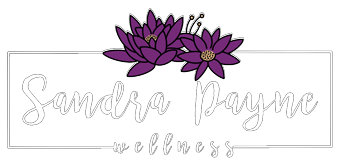Disease to Please
The Disease to Please
I always liked the idea of setting boundaries, it sounded very strong, like I was building a fortress protecting myself. But actually determining what boundaries I wanted and setting them was not something I ever did. Maybe it was too powerful for me to accept as a possibility, as something that I didn’t feel I had the capability of creating or the confidence to enforce. Or maybe it was the guilt that came with saying no, and the fear that standing up for myself would end up losing me relationships.
I’ve gotten much better at this over the last years. After realizing that “setting boundaries” isn’t really such a formal activity, rather more of a guideline that I could create to identify my limits and how I will respond when someone passes those limits. It turns out it’s not that difficult to actually set them, but it is much more difficult to enforce.
Why Set Boundaries?
To set boundaries is important to ensure that relationships are mutually respectful, supportive and caring. They set the limits for acceptable behavior and help others to know where you stand. Unknown or weak boundaries leave you vulnerable and likely to be taken for granted or hurt by others. But the benefits of boundaries are huge for our confidence, our self-esteem, and our emotional strength and energy.
Why We Avoid Them
When I reflect back on many times in my life where I was hurt by someone I can see that I had really weak boundaries. I was willing to let people walk all over me. This came down to really how little I valued myself. When you don’t feel worthy of respect, you won’t demand it. It’s not that I, or anyone, is born untrusting, but certain life experiences can create a lack of trust and low self-esteem and make us more susceptible to boundary violations.
Fear and Guilt are by far the main reasons that many have a hard time standing up for ourselves, or saying no to things we don’t want to do and tolerating rude or mean behavior of others towards us. Like a lot of things it’s a vicious cycle, the more we avoid setting boundaries, the more we’re taken advantage of, this violation lowers our self-esteem further, and so the weaker our boundaries become and so on.
So How Exactly Do You Set Boundaries?
- The first step is ALWAYS awareness. Set up a time where you can write out a promise statement to yourself that will allow you to become aware of what your limits are. Include in your promise what your boundaries are protecting and how you will respond if they are breeched. This is mine. “I promise to communicate my boundaries in professional and personal relationships. I promise to always stand up for my beliefs and my values if I feel they are being compromised. I promise to never let another person make me feel less than or unworthy, and if they do I promise that I will stand in my power and demand the respect I deserve. I promise to speak my truth and ask for what I need and to never compromise my emotions or my desires because of fear and guilt. I promise to value my body and my emotions, as well as my time and my energy. I promise to take action verbally through assertive communication to enforce my boundaries when I feel they are being violated and if the disrespect continues I promise to be firm and seek outside support.” Print it out and post it and remind yourself regularly.
- Practice Setting Boundaries. There are multiple types of boundaries you will want to look at setting as well as many different relationships to set them in. The types include, personal space, emotional interactions, intellectual, ethical, touch and sex, material or possessions, time, and energy investment. Boundaries also don’t have to be rigid, then can be flexible as long as they stay within your promise to yourself and don’t leave you feeling any negative emotional energy. You may have more flexible boundaries for your loved ones and more rigid boundaries for professional situations. Always be open to evaluate and adjust but learn to trust your intuition or your gut reactions to situations and relationships and never veer from your promise to yourself.
- Be Assertive, not aggressive when it comes to expressing boundaries. If you don’t feel confident in the moment to speak up, then take the time to process what you’re experiencing. When confronting someone who has violated your promise to yourself you want to ensure you are speaking from a place of honesty and clarity and avoid blaming, name calling and accusations. For example “you are a jerk for saying my cooking sucks”. Try instead using an “I feel” statement such as, “I feel hurt when you criticize my cooking when I’ve tried my best to do a good job”. Then follow this up with what your boundary is. “What I need is kindness and appreciation for my effort”. No blame or shame, just words expressing how you feel and how you are impacted and what your boundaries are.
- Learn to Say NO. This is hard. So often we just say yes to everything because we feel fear and guilt of hurting or disappointing others, all at the expense of ourselves. So we are left with an excessively busy lifestyle that leaves us exhausted and burnt out and resenting everyone and everything. We don’t need to justify our reasons for saying no we just need to get comfortable with being uncomfortable and believe in the importance of saying no for our own needs
- Get Support. If you are having difficulty setting and enforcing your boundaries get support from someone skilled to help you effectively determine your personal limits and communicate them. Never feel alone in any of life’s paths, there is support out there, you just have to accept it.











